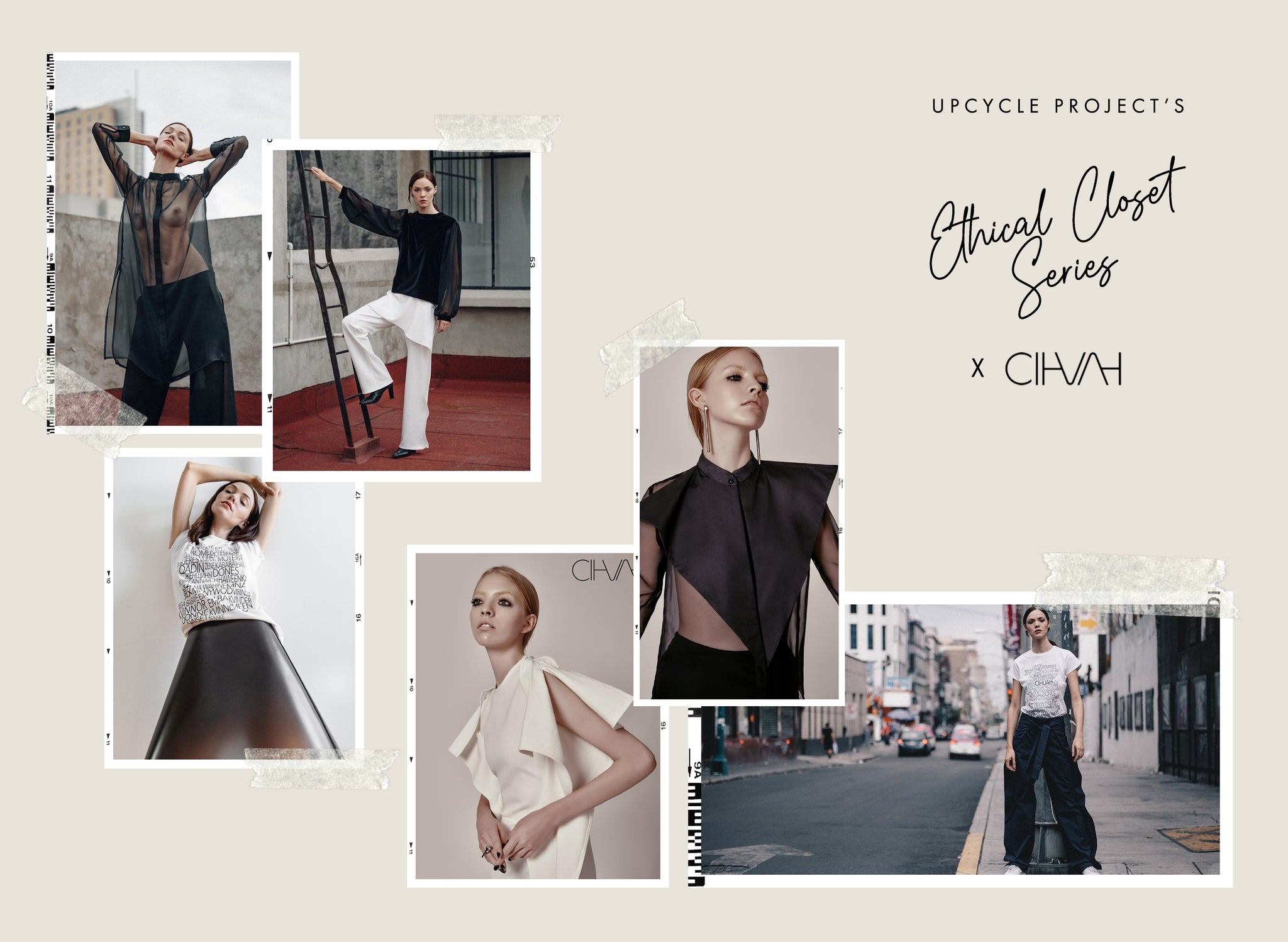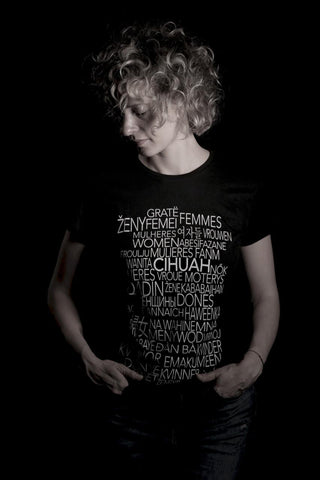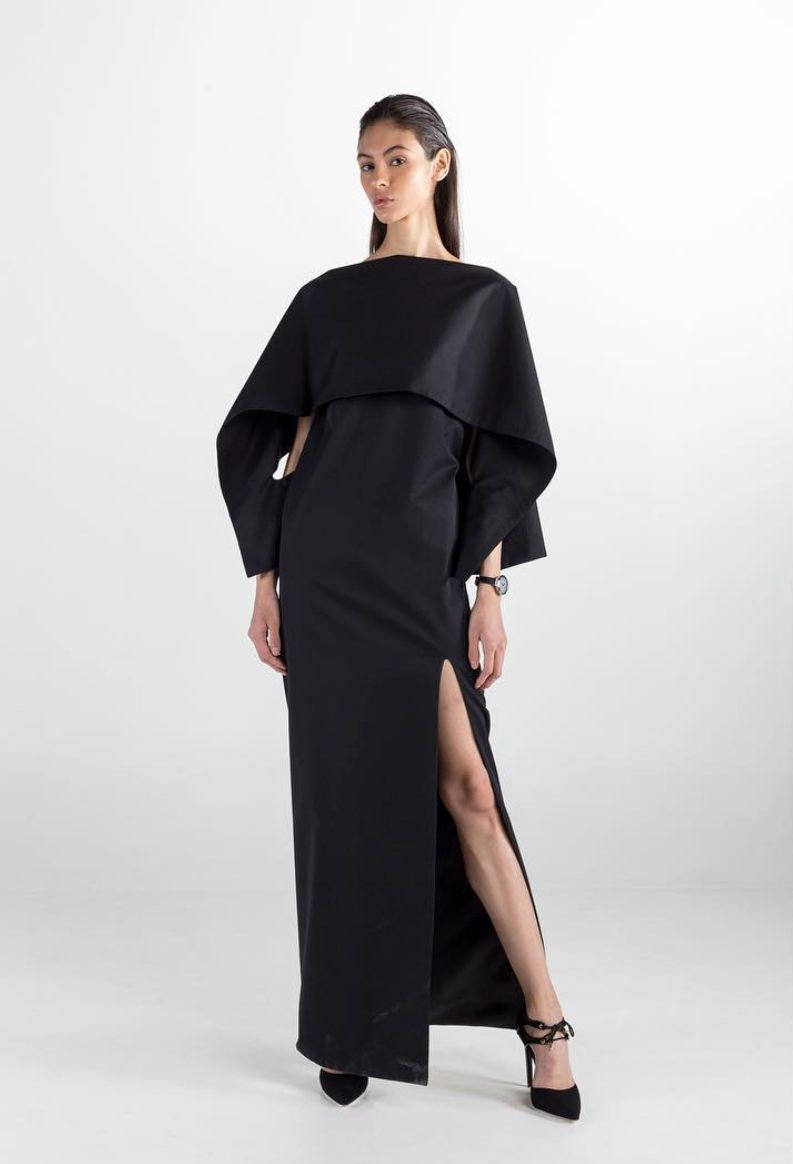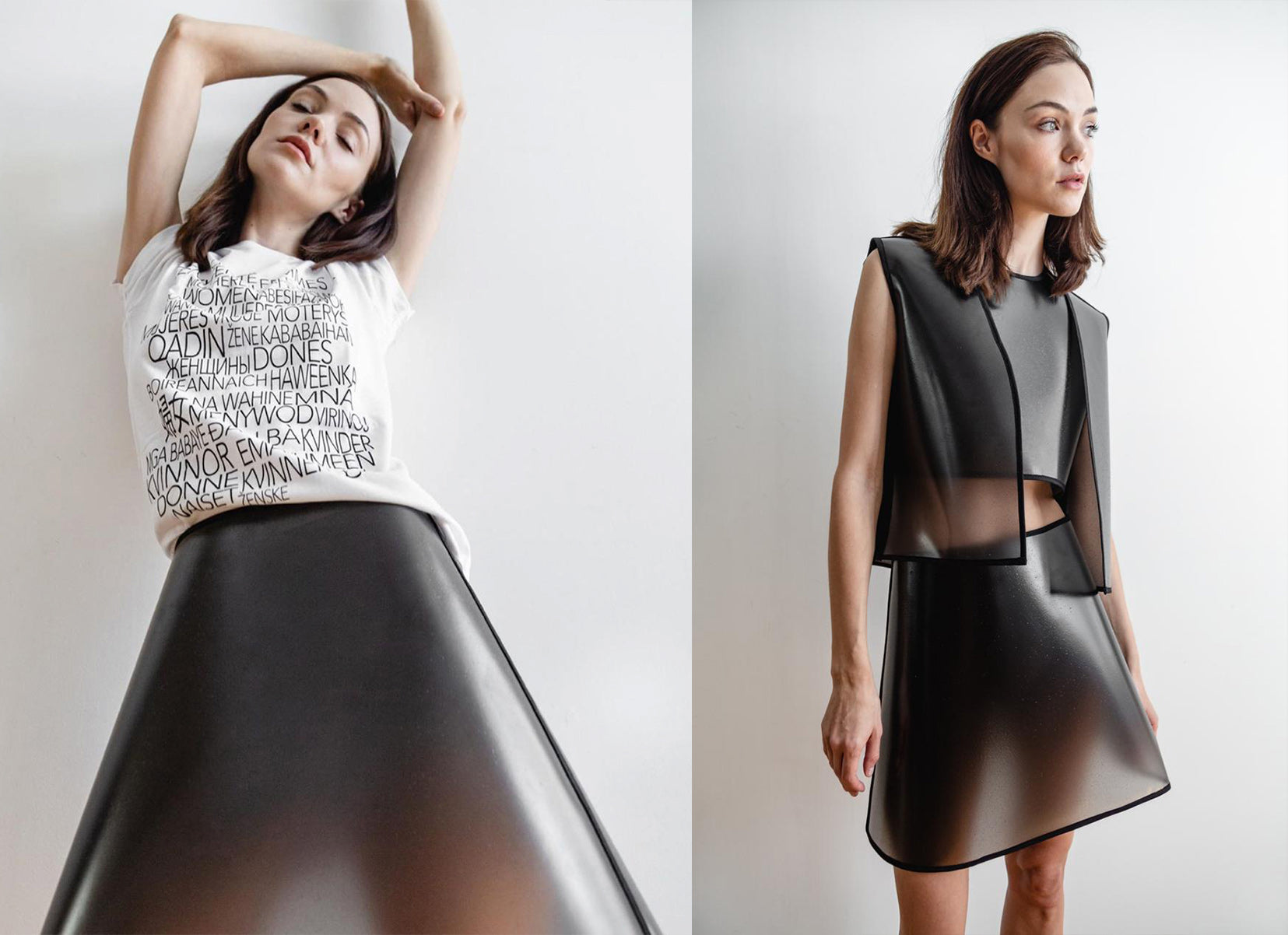Ethical Closet Series: Cihuah

Cihuah is an ethical contemporary fashion brand based in Mexico with an ambition to propose a new way of living in the human body, approaching fashion design with architectural elements.
The word Cihuah means "women" in Nahuatl and pays tribute to indigenous Mexican women, their culture and traditions. The brand is inspired by the basic and sacred geometric patterns of indigenous Mexican clothing while creating a contemporary look
Vanessa Guckel is the brand's Founder and Creative Director. Originally from France, she has been living in Mexico for the past 12 years, and it was there that she was inspired to begin her label of exclusive, designer garments. Trained at the National School of Architecture in Strasbourg, France, and the School of Architecture and Faculty of Fine Arts in Seville, Spain, she worked for several reputable architectural firms in both France and Mexico before turning to fashion design. With the understanding that, much like a building, “clothes are the spaces in which the human body lives”, Vanessa's designs reflect an interplay between architectural concepts and fashion, resulting in a unique and striking image.
UP: Tells us about your brand, why did you start your label?
VG: I am an architect by profession. I started CIHUAH because I would like to work on another scale, a smaller scale closer to the human body. Clothes for me is the first habitation of humans in which the body lives. And also because the current fashion bored me a lot! J I wanted to do something different. With a different concept, innovative designs, and above all a responsible and conscientious brand.
UP: Do you believe in Fashion Shows?
Absolutely not! I did not study fashion, so I didn't know what they call “the fashion calendar”. I did not have the conditioning that traditional fashion schools give you when you are studying the career. In the beginning, I did not make collections and very quickly people in the industry told me “You have to make collections if you want people to see you and take you seriously”. So, I followed the conventional fashion path. And in 2018 I decided that enough is enough. I can't follow a process that I don't believe in. Making collections is not sustainable for the supplier chain, nor the designer, and even less for the consumer. So now, my business model turns to capsule collections, best sellers, pre-order, limited editions. I produce what is necessary and what they ask me, no longer to see if maybe it will be sold.

UP: How have you disrupted the Mexican Fashion industry?
VG: I never use color! In a country where the colors stand out! So I do not compete, on the contrary, I enhance the colors with a sober frame of black and white.
UP: How do you choose your materials?
VG: We have a big supply problem in Mexico. The fabric offer is ridiculous and designers have to import fabrics from the US, Europe, or Asia. It is not sustainable. For example, in Latin America, countries like Peru or Colombia make their own fabrics, with technology and innovation, and also with organic or recycled materials. There is a very strong industry. This is not the case in Mexico. We are good at making pieces, but we lack raw material.
UP: What country do you manufacture in?
VG: Only in Mexico. It is important for us to have a local product since it pollutes less, we can also pay our seamstresses better, and we have total control of the product. I cannot imagine being far from my seamstresses. Also, I adore them!!
UP: Who makes your collections?
VG: I design all our products, clothes, and accessories. Fernanda Sanchez, our pattern maker, makes the patterns and samples in our design studio. From there, the production is outsourced. Our seamstresses prefer to work at home. It has worked perfectly for them and us and we are all happy.
UP: How do you assure they are paid fairly?
VG: We ask them how much they want to get paid to make each garment, they give us a price that seems fair to them, and we rarely discuss it. We respect their calculation and their needs. We have complete trust and mutual transparency. In general, they are the market prices, sometimes it is a little more. In the end, it is the real price for making clothes today.
UP: How often are you in contact with your artisans, factories, and seamstresses? Do you visit them?
VG: We form privileged relationships with every single supplier to form trust-based, long-term relationships. At present, all of our designs are produced in Mexico because of the carbon footprint concern and eco-responsibility on the planet. This option is more appropriate for us because we have control of the quality of working conditions and the supply of materials. True to our origins and the values that define us, it is our commitment to do things well, working hand in hand with each partner.
We spend months finding the best tailors in Mexico City. We visit them often and build strong relationships with each dressmaker. They receive a fair wage, have reasonable hours, and works in respectable conditions.

UP: Which one is your favorite piece in your work?
VG: My favorite piece is the first dress of the brand, the “cape-dress”. It represents all my work and concept, a lot of geometry, straight cut, various uses and functionality, and from it, I began to design all the models that followed. In fact, from this dress, I created the “cape-blouse” that Gabriella Smith has. The first woman to wear this dress and for the first time was Françoise Lavertu. I will always remember it.
UP: Tell us about your processes
We aim to achieve zero waste across all fabrics that we order. We do not follow trends and that allows us to have no waste of fabric, we use the ones that work for us again and we always focus on innovative design. We work with geometric patterns so as not to waste fabrics. We also have reduced the percentage of packaging and plastic.

UP: Tell us about the innovative textiles you are creating
VG: “We need to reinvent our eating and drinking, our moving and working, in our local ecosystems and local cultures.” Vandana Shiva
Today we face an emergency: we must find renewable resources and alternative production techniques that do not threaten the natural world or use harmful chemicals such as petroleum. The challenge is great, especially for the fashion industry, which requires textiles.
In response, we have developed a fermentation process that produces an organic and compostable biomaterial from living organisms such as bacteria, algae, yeasts, and fungi. This bacterial cellulose fabric is a natural biopolymer, with extraordinary properties such as durability, mechanical resistance, and moldability. It is also hypoallergenic.
One of the advantages of this biodegradable material is its role in a circular and sustainable system of life; your garments no longer end up in the garbage but return to the earth. This investigation into new ways to create fabric offers an interesting alternative to raw materials that deplete natural resources.
Our new project is called BIOARTEX® (IG @bioartexmx FB @bioartex). We created several garments from a recipe developed with the help of chef Axel Vázquez and the Biology Studio laboratory, which we will present for the INEDITO 2019 exhibition, part of the DESIGN WEEK MEXICO 2019 program.
This exercise is the result of the first investigation of new methods of dressing. It offers an interesting alternative to raw materials that deplete natural resources.
We think that food waste is the future of clothing. We emphasize the fact that we create this biomaterial at home, cooking food waste. Anyone can start it from home, no need to go to a laboratory. Later on, and as is our case, if you want to include bio-fabrication in your processes as a brand, you are going to need the help of a chemist or scientist. But I believe that nowadays every brand should have a scientist on their team :)
UP: What advice do you have to create an ethical closet?
VG: You always have to think about why you are going to buy this garment, who made it, and what it is made of. Seek to have an emotional relationship with it, treat it with love, and give it many uses before forgetting or abandoning it.
Website: cihuah.com
Insatgram: @cihuah
